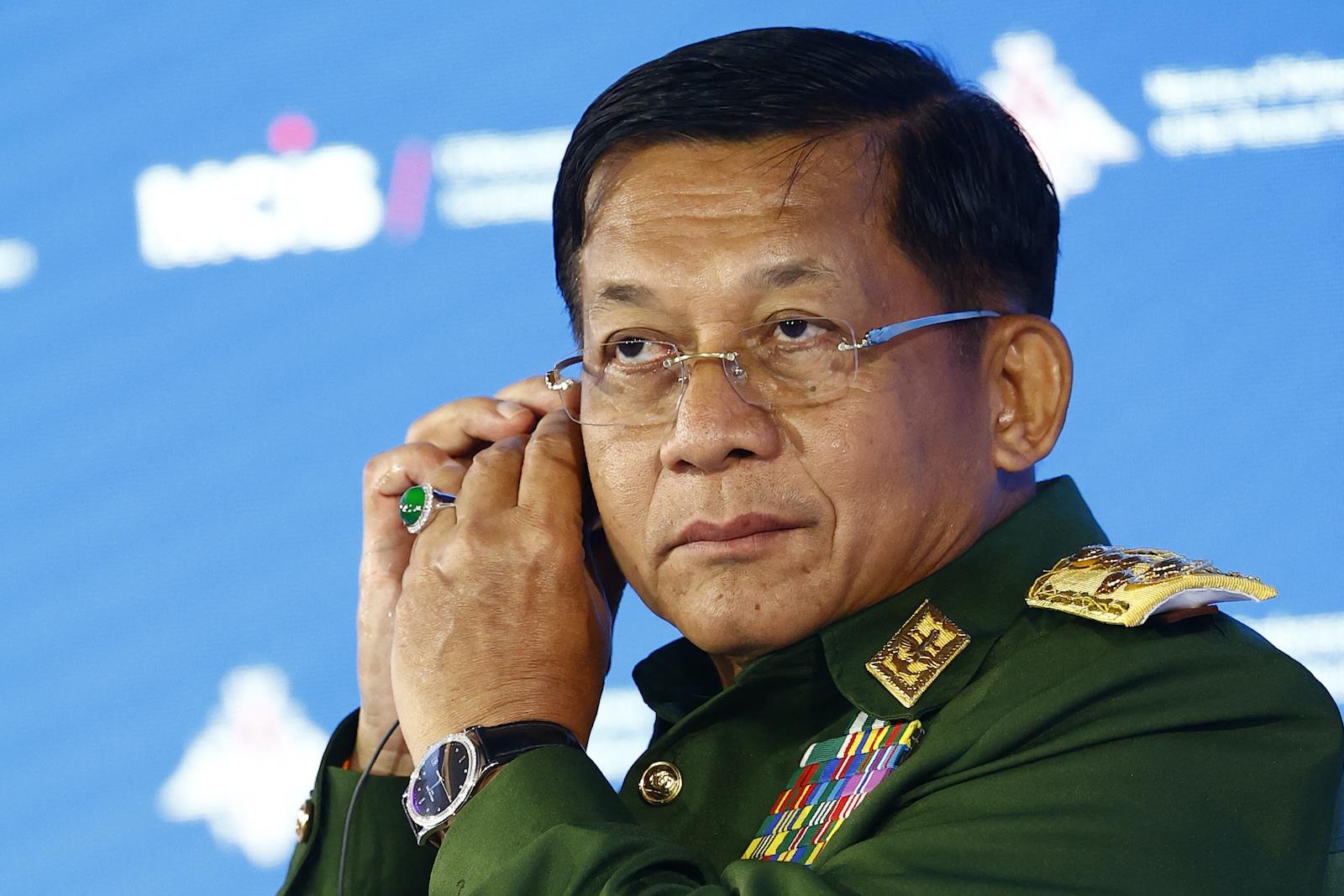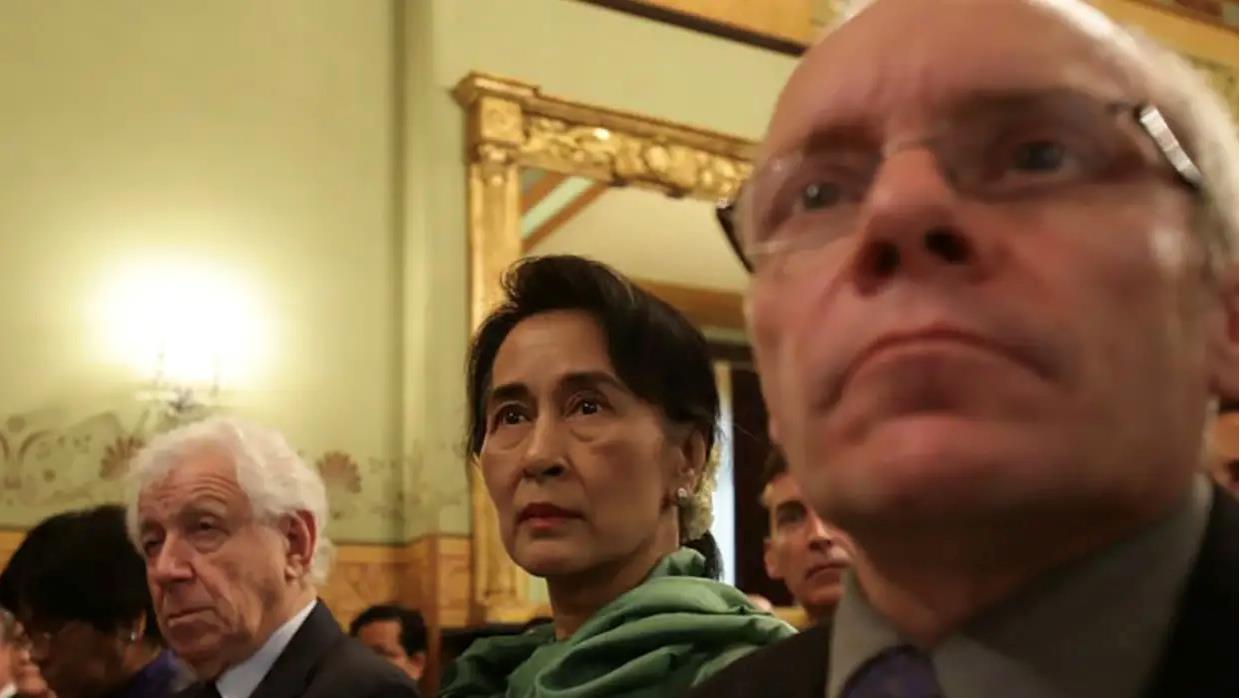(MENAFN- Asia Times)
Australia's general election result on Saturday was probably not followed closely in the Myanmar military capital of Naypyidaw. But the increasingly embattled generals should take note that the new Labor government in Canberra may well be a marked departure from the moribund and morally spent Morrison administration they could count on for mute criticism.
Australia's response to Myanmar's February 2021 coup d'etat has been widely criticized as lackluster, unimaginative and ultimately a failure. The initial stance was to condemn the coup while seeking to salvage some measure of the bilateral relationship through diplomacy and military-to-military links.
A major concern was the arrest one week into the coup of Australian economics professor Sean Turnell, who was also a senior policy advisor to the toppled National League for Democracy (NLD) and its leader Aung San Suu Kyi.
Phone calls between the Australian Defense Force deputy commander Vice Admiral David Johnston and Vice Senior General Soe Win, the number two in the Myanmar military and State Administration Council (SAC), according to the Australian Department of Defense,“underlined the very high priority that Australia attaches to Professor Turnell's release, and made a range of requests regarding his circumstances.” Since those calls, Turnell remains incommunicado and on secret trial under the colonial-era Official Secrets Act.
The Morrison government and its outgoing foreign minister Marise Payne put much of their Myanmar post-coup response on the Association of Southeast Asian Nations (ASEAN), which has utterly failed to make progress on the Five Point Consensus reached with SAC chief Senior General Min Aung Hlaing in April 2021. Canberra has refused to impose targeted sanctions, looking increasingly out of step with partners like the United States, Great Britain and Canada.
The outgoing Australian ambassador, Andrea Faulkner, who had reportedly worked extremely hard to secure Turnell's release, was widely criticized for meeting with Min Aung Hlaing in early April, at which she even brought along a uniformed Australian military officer.
However, in mid-May, Australia announced it would not be sending a full ambassador to Yangon, which would have necessitated a“presenting credentials” ceremony to the head of state, which would be the junta leader. Instead, the representative would be a charge d'affairs, rumored to be former Australian ambassador to Cambodia Angela Corcoran. In reply, the SAC threatened to downgrade its ambassador in Canberra to a charge d'affairs also.

Myanmar's coup maker Senior General Min Aung Hlaing attends the 9th Moscow Conference on International Security in Moscow, Russia on June 23, 2021. Photo: AFP via Anadolu Agency / Sefa Karacan
If this indicated a policy readjustment for Australia, the new Labor government may potentially significantly overhaul its stance on engaging the SAC. South Australian Senator Penny Wong's appointment as the new foreign minister is a major step in a new direction.
Having served as the“shadow” foreign minister since 2016, widely seen as a key performer in the Labor party since becoming a minister in 2007 and tipped to be a future prime minister, the Malaysian-Australian Wong has already indicated a markedly different approach since the 2021 coup and was consistently critical of the previous government's timid response.
Hours after her swearing-in as Australia's top diplomat, Wong traveled with incoming Australian Prime Minister Anthony Albanese to Japan for a meeting of the four-country Quad, comprised of Japan, US, India and Australia. She is now in the South Pacific trying to shore up multiple fractured relationships there.
So what can we expect from Wong's approach to Myanmar? Targeted sanctions might be likely. More criticism of the SAC's horrendous human rights records is also probable. Ideally more and better directed humanitarian assistance is on the cards, along with stronger assurances that Myanmar people at risk are permitted to stay in Australia. Expect continued close engagement with ASEAN as well.
Wong indicated a substantial redirection in a major foreign policy speech in November last year, entitled“Expanding Australia's Power and Influence” and made to the National Security College. In the speech, she promised a major departure from the Liberal/National Party coalition government by emphasizing“multilateralism, the region, and our alliance with the United States.”
She pledged to recalibrate the Department of Foreign Affairs and Trade (DFAT) to the regional strategy, reiterated support for ASEAN including appointing an ASEAN Special Envoy, and, of note to Myanmar's SAC,“we should have Magnitsky sanctions and formalized engagement with NGOs to target those responsible for human rights abuses around the world.” (The Magnitsky Act is US law that targets human rights violators in other countries)
Wong and Labor have also pledged to appoint a Human Rights Ambassador to counter the Morrison government's“negative globalism”, with Wong telling The Guardian Australia newspaper“Amid rising authoritarianism and repeated assaults on the global rules-based order, it is more important than ever to ensure Australia's foreign policy advances our interests and our values” citing Russia, China and“the military in Myanmar, authoritarian leaders are undermining the rule of law and the letter and spirit of the UN Charter.”
Several elements should be key in Australia's new approach to Myanmar, with securing the release of Turnell as the highest priority.

Sean Turnell, right, with Aung San Suu Kyi, center, at Australia's Lowy Institute think tank in 2013. Image: Lowy Institute
First, it needs to prioritize cross-border humanitarian assistance to the now nearly one million internally displaced people, and adopt a“solidarity”-based approach to aid. Australia can balance its contribution to the United Nations for sharply rising humanitarian needs in Myanmar with an increase to border-based community and national aid groups.
Some 14 million people in the country currently need assistance, by some credible estimates. That number is likely to increase as the economy collapses and civil war spreads. Albanese's Australia can't and shouldn't abandon people in need across Myanmar, including refugees around the borders of Bangladesh, India and Thailand.
Second, the new government needs to fundamentally rethink its prioritization of ASEAN as a salve for any negotiated solution. ASEAN is now bitterly divided on the issue of Myanmar, as the recent United States-ASEAN Summit in Washington should have made clear.
There was no representation from the SAC, yet the Deputy Secretary of State Wendy Sherman and Malaysian Foreign Minister Saifuddin Abdullah met with NUG Foreign Minister Zin Mar Aung. ASEAN's humanitarian arm, the AHA Center, has received AUD$5 million but has achieved virtually nothing.
Third, and this is perhaps the most fundamentally important change, is to vanquish once and for all military to military engagement. As the phone call between Johnston and Soe Win proved irrefutably, you cannot trust the Myanmar military leadership. Australia has long had an arms embargo on Myanmar yet its military relationship entails an absurd AUD$300,000 a year“peacekeeping training” package.
Fourth, the case for engagement with Myanmar's military has been very clearly, carefully and cogently articulated by academics and former defense attaches such as Professor John Blaxland for many years. Yet there is no evidence it works in practice.
The simple fact is that the Myanmar army you meet at a formal function, a ceremonial event, a“peacekeeping training” or even on the phone is essentially a hologram: the real character of the military is burning down houses, looting property and executing civilians.
The real Myanmar army is now burning down thousands of homes in the Sagaing Region, bombing civilians from the air across the country and engaging in blatant war crimes on a daily basis. There is no getting through to the Tatmadaw and the new Albanese government should stop trying.
Myanmar's Tatmadaw is widely accused of human rights abuses. Photo: Facebook
More appropriately, Australia should develop a program to provide asylum for more army defectors and deserters, which caused a major stir in March with a report of two personnel being accepted.
Any support Australia can provide, not just on asylum claims but also through financial aid, for groups such as People's Soldiers, which encourages military defections, and the work of multiple international justice initiatives would be better suited to understanding the military than conference calls with de facto war criminals.
Fifth, a comprehensive targeted sanctions package should be put in place in step with international efforts targeting senior military officials, military entities, prominent commanders and units, military businesses and all the SAC members' military and civilian interests. New Magnitsky sanctions could be a perfect regional test case following in step with Western sanctions on Russia's invasion of Ukraine, as the previous government did in March sanctioning Moscow under Magnitsky sanctions passed late last year.
Wise heads will say it won't work but Australia has to be in step with allies to repair its tarnished reputation on Myanmar, and regionally, as ethically docile.
Next, while recognizing the opposition NUG is probably too much of a stretch, Australia has to move beyond hoping for an ASEAN breakthrough and speak not just to the NUG and the Committee Representing the People's Hluttaw (CRPH), which has an Australian Support Group, but multiple other key actors including armed resistance organizations from multi-generational insurgencies such as the Karen National Union (KNU), ethnic civil society and strike committees and the Civil Disobedience Movement (CDM).
There are multiple anti-SAC elements now and Canberra should be seeking rapport and understanding with all of them. It will also help Australia to engage with ASEAN's effort if it has a more granular understanding of the country's political and security complexities.
Finally, Australia should also rethink any engagement with the Myanmar Police Force (MPF) on counter-narcotics interdiction. Even as Australia and the region is inundated by crystal methamphetamine manufactured in Myanmar, the police are now firmly under control of the Myanmar army and thus will not have any inclination to work on meaningful drug cooperation.
The most compelling argument for a fundamental rethink of Australian policy comes from the SAC and military themselves. As they rampage through Sagaing and Magwe on an arson spree, shell civilians incarcerate nearly 10,000 people and put on trial democratically elected leaders, trying to reason with the generals hasn't worked. It's time instead to hit them where it hurts.
David Scott Mathieson is an independent analyst working on conflict, human rights and humanitarian issues on Myanmar
MENAFN25052022000159011032ID1104273203